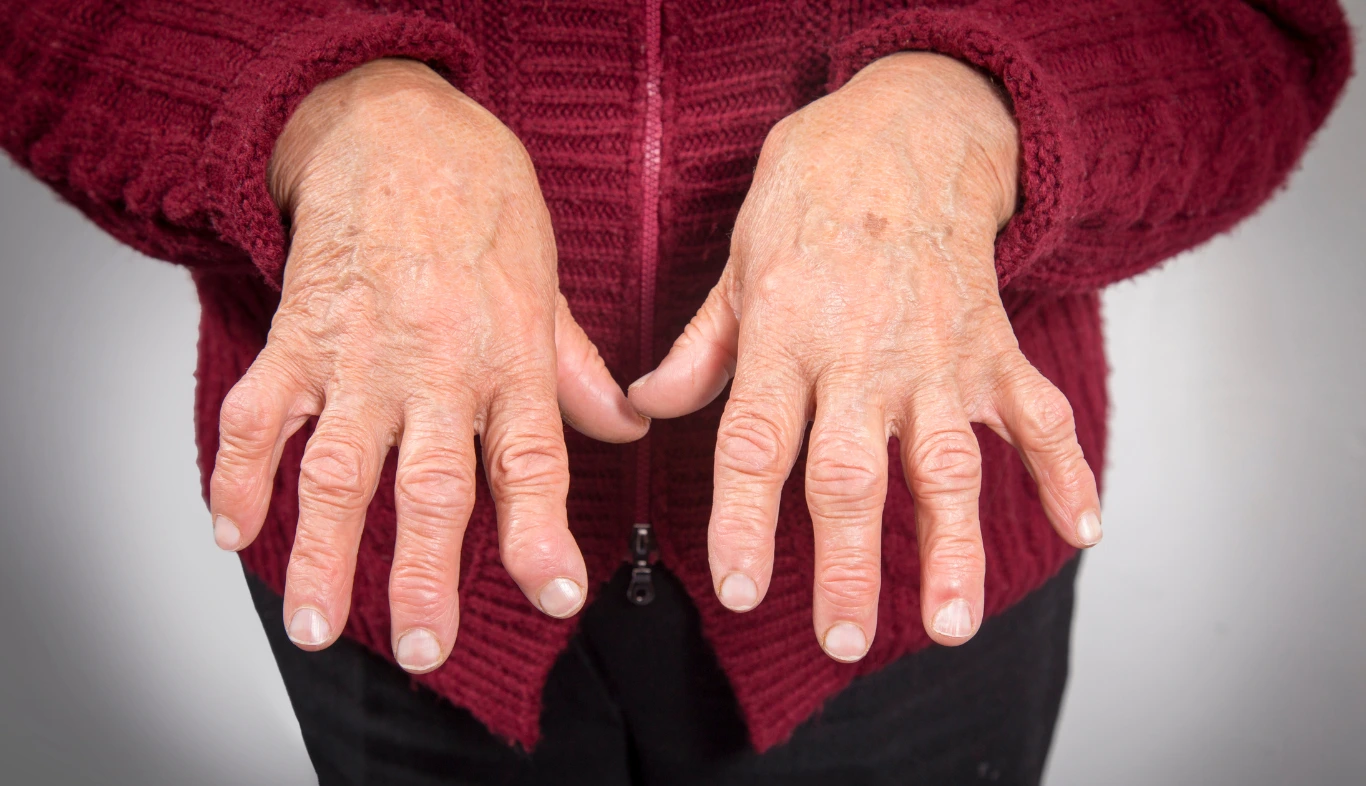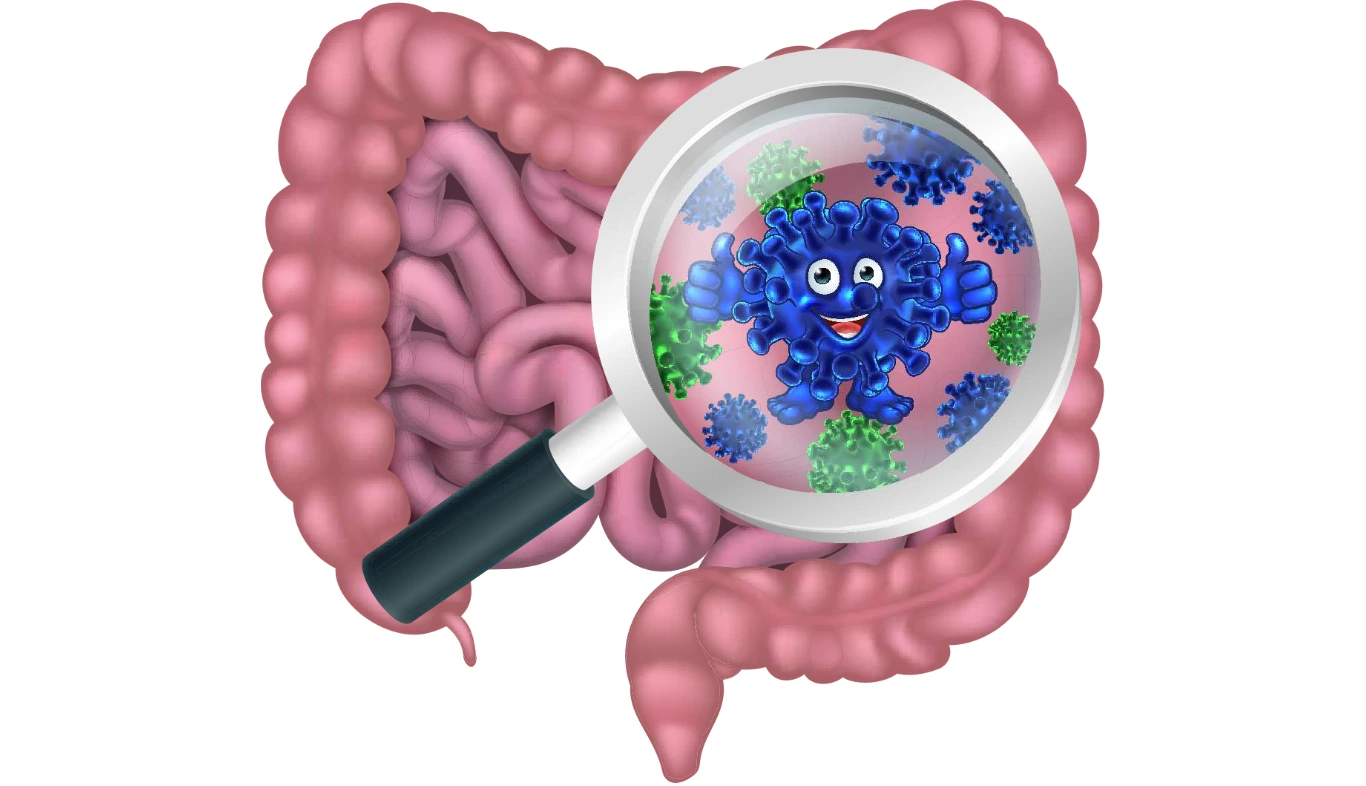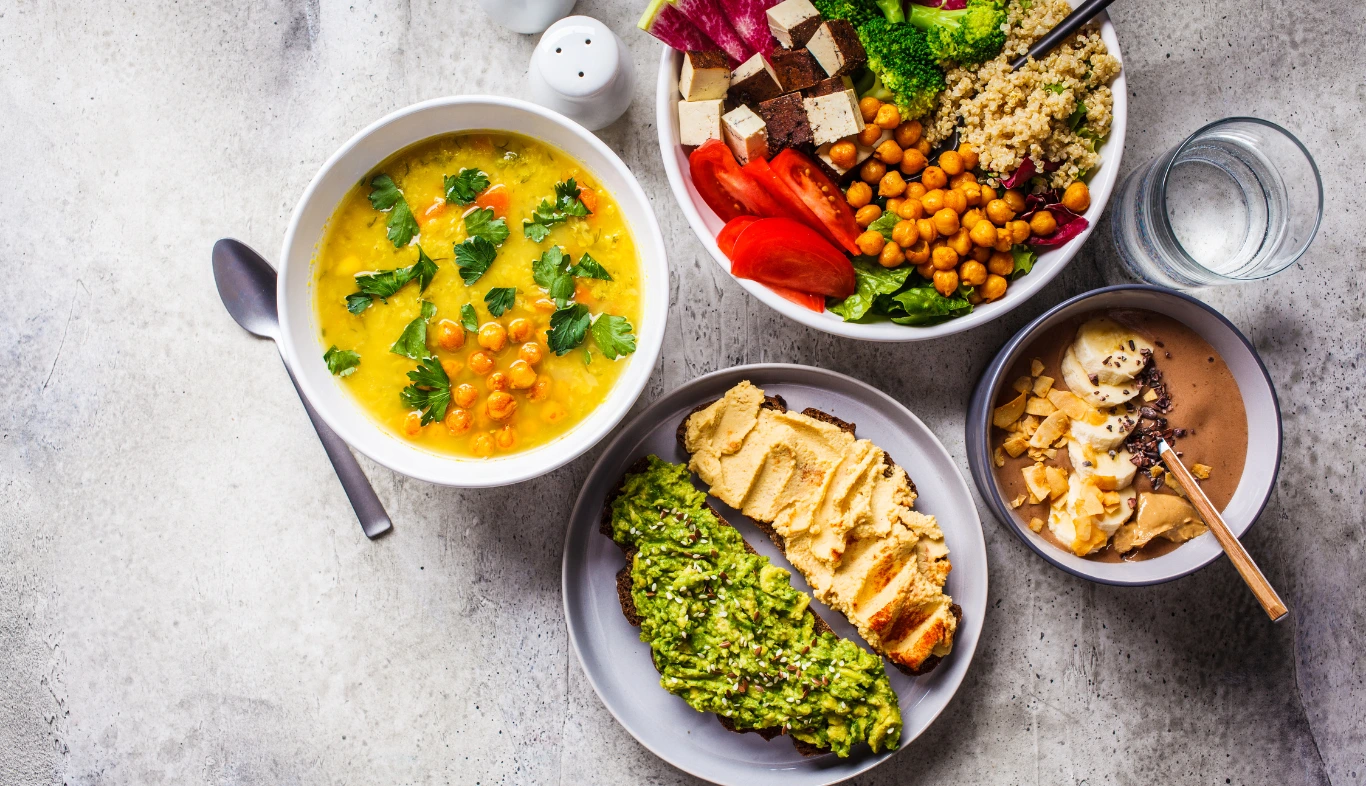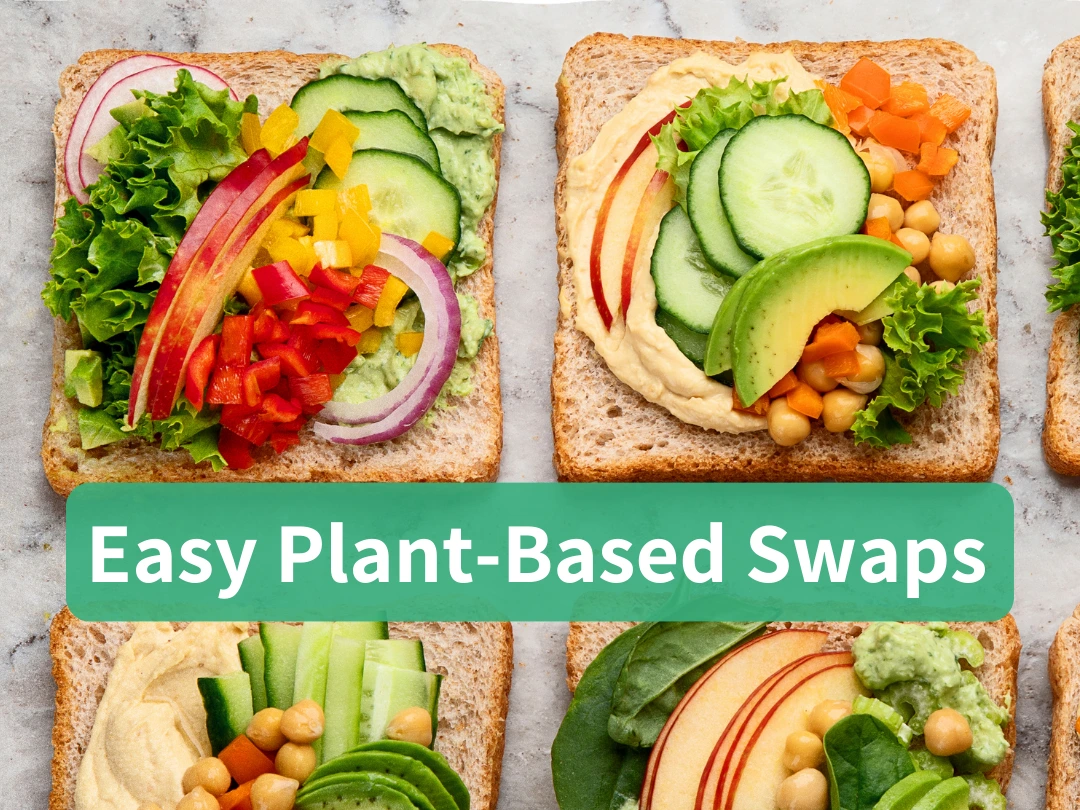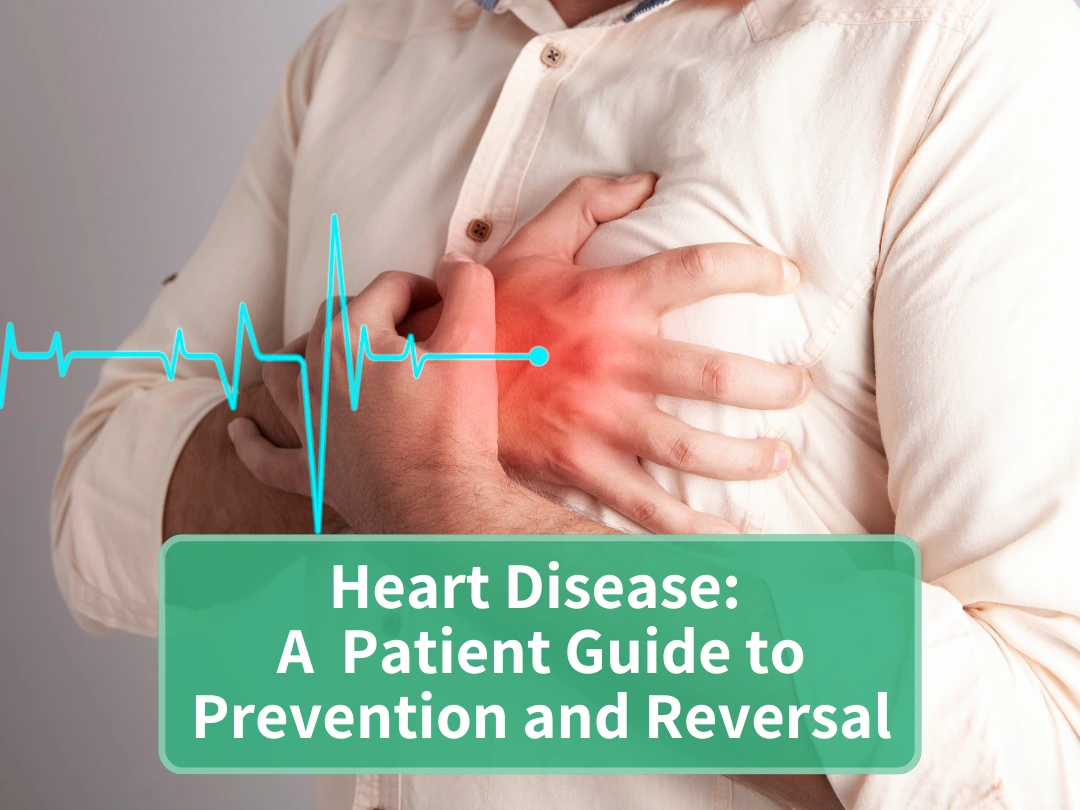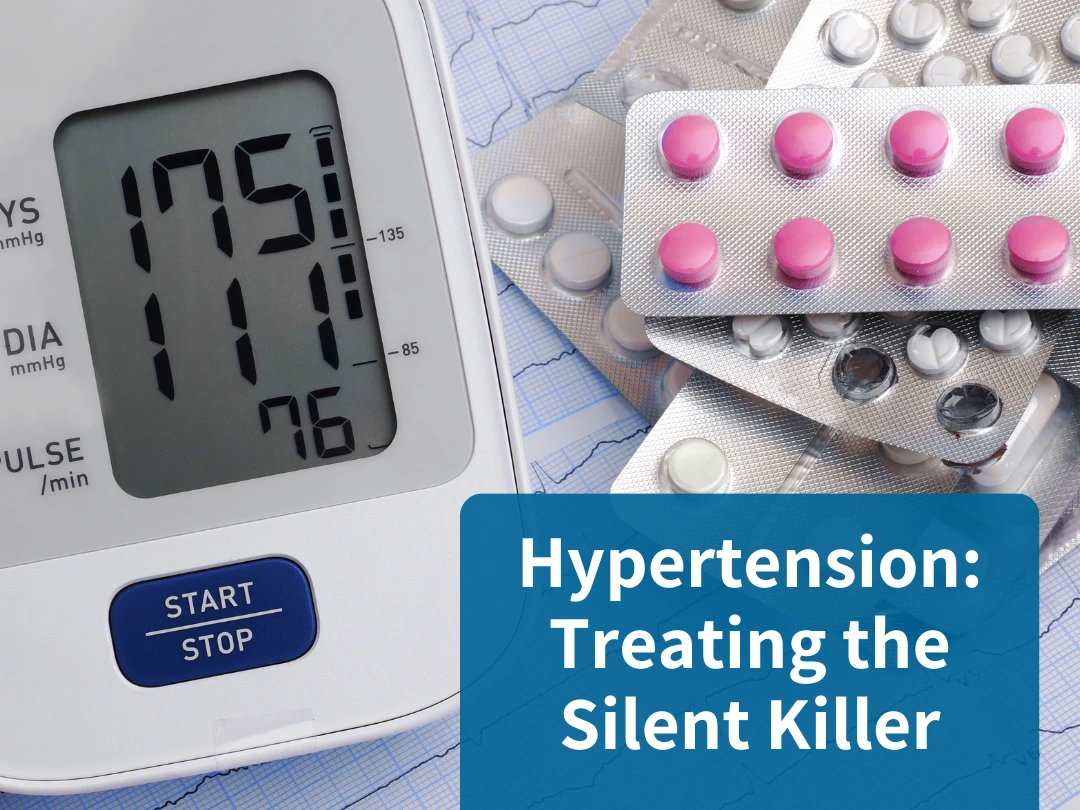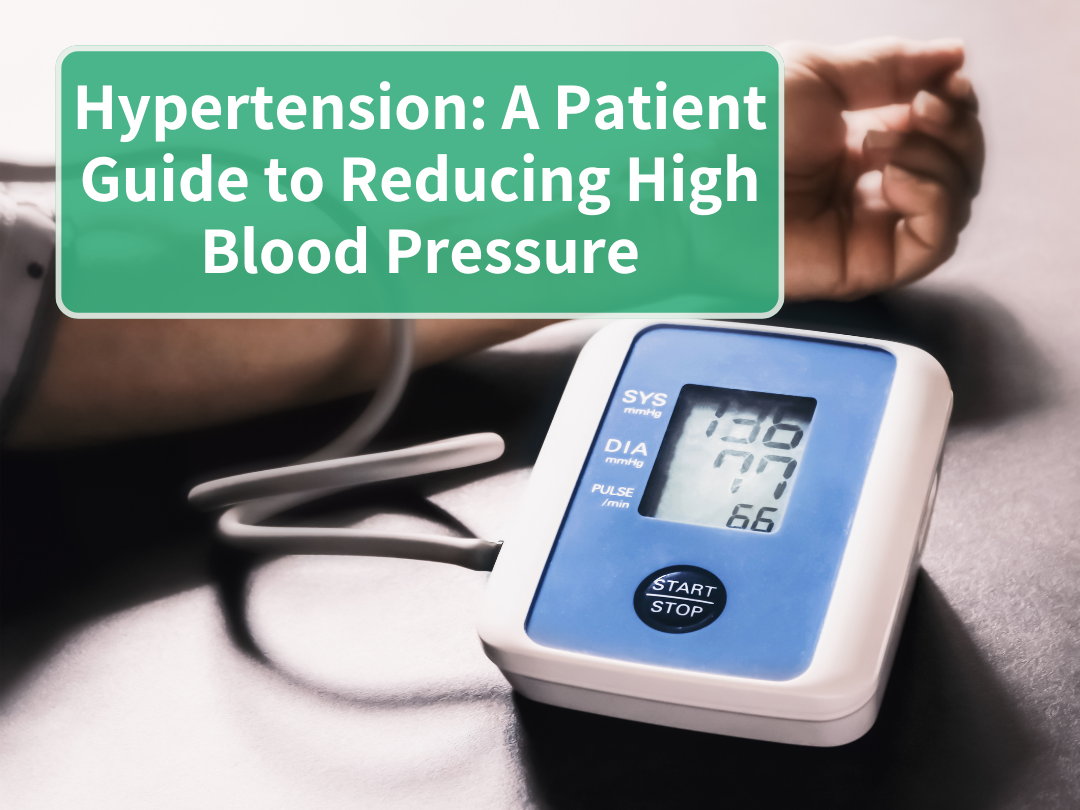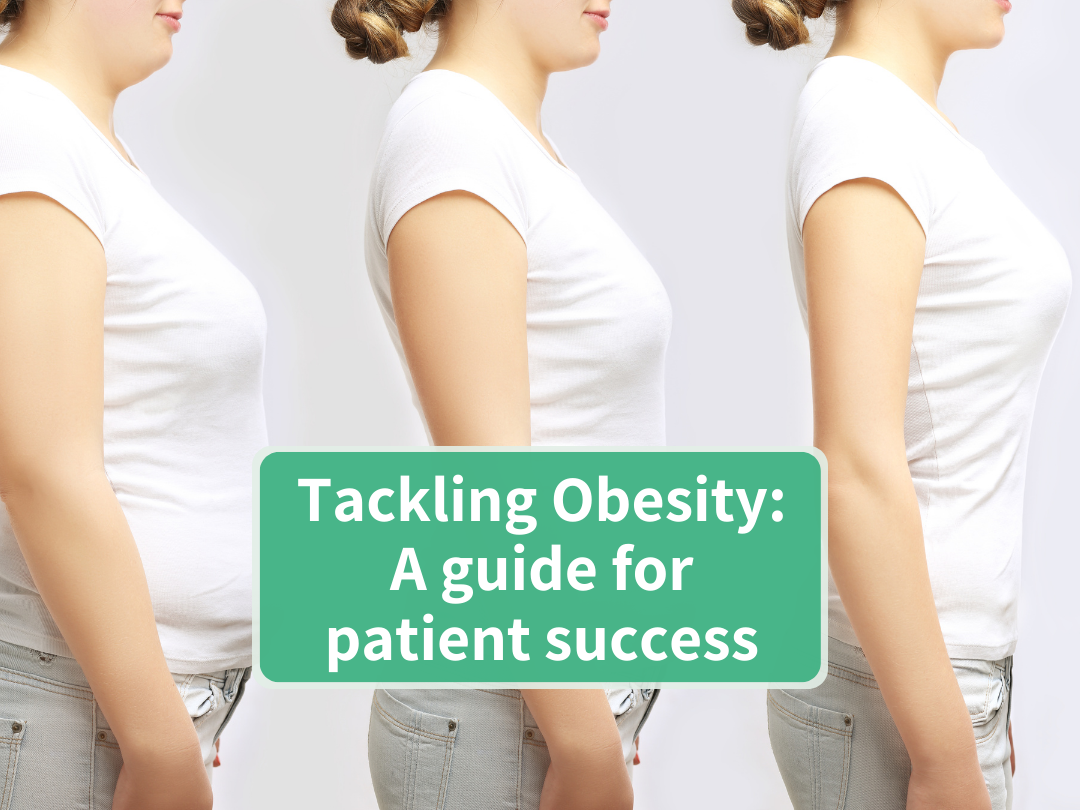
Manage Your Rheumatoid Arthritis With Diet
By Terri Chrisman M.Nutr, Dip.ACLM from the PAN Academy – our online learning platform where you can learn all about nutrition and health.
Purpose
The purpose of this article is to clear the confusion surrounding rheumatoid arthritis. We will explain why it manifests in joints and what you can do to lessen its hold. Then we will share insights on food choices you can make to relieve symptoms and reduce pain.
Rheumatoid arthritis does not have to define you. You have the power to reduce symptoms and improve joint function by changing your nutrition. Whole food, plant-based nutrition can reduce inflammation and pain associated with rheumatoid arthritis.
What is Rheumatoid Arthritis?
Unless you are part of the 0.25% of people with rheumatoid arthritis (1), you probably don’t know much about it. Like other types of arthritis, rheumatoid arthritis attacks the body’s joints. However, unlike osteoarthritis where damage to the joints comes from repetitive mechanical stress forces, rheumatoid arthritis damages the joints via the body’s immune system.
The immune system senses foreign invaders in joint cavities and sends in the cavalry to destroy them. But, it’s a false alarm. There are no foreign invaders so the immune system destroys the cartilage and bone tissue inside the joint instead. Ouch! This creates painful, swollen joints, particularly in the feet and hands. Eventually, the damage can be so severe it can result in deformations and the inability to use the digits.
Why does this happen?
What about airborne toxins and inflammation?
Wait! Your gums affect your joints? I agree – that sounds weird and out of place, but there is nothing “normal” about rheumatoid arthritis because it has so many faces.
It’s happening in your gut
Dysbiosis is the name given to the gut when it is unbalanced in favour of non-beneficial or ‘bad’ bacteria. Dysbiosis can trigger inflammation and make rheumatoid arthritis symptoms worse (4). An unbalanced gut can also raise harmful substances such as trimethylamine oxide (TMAO) in your body. TMAO is key in preparing an environment ripe for rheumatoid arthritis (5).
Does obesity increase rheumatoid arthritis pain?
You are three times more likely to develop rheumatoid arthritis if you are obese (6). Plus, being obese makes the drugs used to treat rheumatoid arthritis less effective. A common drug type is anti-tumour-necrosis-factor (anti-TNF) medication that helps reduce inflammation and slow the progression of rheumatoid arthritis (7). A study followed six hundred patients taking anti-TNF medication for 12 months to see the effect of the drugs on rheumatoid arthritis symptoms. Obese patients experienced symptom relief at half the rate of normal-weight patients (8).
Can food sensitivities trigger rheumatoid arthritis?
Many food sensitivities are caused by food antigens found in animal products or chemicals from ultra-processed foods. As it is difficult to isolate food chemicals that trigger arthritis symptoms, it’s best to work with your doctor if you are considering a diet to eliminate food antigens.
How can my diet reduce my rheumatoid arthritis symptoms?
The fibre and other compounds in different plants assist in balancing the gut microbiome and increase the diversity of gut bacteria. More diverse bacteria, in turn, improve gut health. When the gut is happy, inflammation reduces and so do the symptoms of rheumatoid arthritis.
A whole food, plant-based diet also has a naturally low calorie-density which helps for weight loss or weight management. Losing weight can help reduce the symptoms of rheumatoid arthritis including decreases in painful, swollen and tender joints (9).
A plant-based diet further can be a great way to eliminate food sensitivities that cause arthritis flare-ups. Swapping out animal products and ultra-processed foods with whole plant foods may improve rheumatoid arthritis symptoms. This is because the immune system reacts negatively to food antigens (10).
How do I get started?
Whilst complete reversal of rheumatoid arthritis is not always possible, stopping further joint destruction and obtaining pain relief can be achieved. Give yourself the best chance of improved joint function by starting with the things you can change. Avoid trigger foods and replace them with whole plant foods as the first step.
If you already know which foods make your symptoms worse, find whole food plant-based alternatives. For example, if milk increases your symptoms, try a plant-based alternative such as soy or oat drink. There are so many different plant milk alternatives to choose from. Some you may like – others, not so much. But don’t give up. Keep trying them until you find your favourite.
As a next step, start to remove ultra-processed foods and animal products from your diet. Make sure to fill the void with healthy plant-based foods. Start with plant foods that you are already eating and eat them more often. Then experiment and eat a greater variety of plant foods. Did you know there are 16,000 different types of legumes (11)? You don’t need to try them all, but it doesn’t hurt to be a little adventurous. Try fruits and vegetables in season to find new favourites. Read our ‘Easy Plant-Based Swaps’ article for ways to incorporate more plants into your diet.
Omega-3 fatty acids have long been recommended as ‘heart-healthy’ fats to lower the risk of cardiovascular disease. They also decrease inflammation, which is fabulous if you are looking to reduce the symptoms of rheumatoid arthritis. A daily serving of walnuts, flax seeds or chia seeds can reduce inflammatory markers in the blood (12).
Will it work for me?
There has been some recent successful research using this dietary approach. The 2023 Plants for Joints study from the Netherlands compared a plant-based diet to a usual care diet over 16 weeks. The study participants on the plant-based diet improved their rheumatoid arthritis symptoms by 26%. They also improved their glucose control, blood pressure, cholesterol, weight and inflammation markers (13). Even just four weeks on a vegan diet improves markers of rheumatoid arthritis (9, 14). But, for lasting relief, it’s important to commit to permanent dietary change.
What can I eat?
- Maximise the intake of high-quality whole plant foods such as vegetables, whole grains, legumes, fruit, nuts, seeds, herbs, and spices
- Choose healthy omega-3 fat sources such as walnuts, flax and chia seeds
- Maximise fibre intake with whole-grain bread and pasta, quinoa, oats, and brown or wild rice for more gut microbiome diversity
- Fight chronic inflammation with powerful antioxidants in berries, cruciferous vegetables (like broccoli), dark green leafy vegetables, and beans
- Some people see improvements in rheumatoid arthritis by eliminating gluten (10)
- Some people see improvements by eliminating nightshade vegetables such as tomatoes, potatoes and eggplant
Practical tips for you
- Reduce inflammation by choosing whole plant foods
- Choose high-antioxidant fruits like berries
- Try removing gluten from your diet to see if it makes a difference
- Get your omega-3 fatty acids from whole foods including walnuts, chia seeds and flax
- Maintain a healthy body weight through diet and exercise
Conclusion
Whilst nutrition is not necessarily a cure-all for rheumatoid arthritis, choosing whole plant foods can lower inflammation, reduce symptoms and improve joint function. The added bonus of eating a whole food, plant-based diet is as you improve your rheumatoid arthritis, you are improving your overall health. Rheumatoid arthritis is connected to other metabolic diseases including obesity, diabetes and cardiovascular disease. When you reduce your risk of rheumatoid arthritis through a whole food, plant-based lifestyle, you also reduce your risk of these diseases.
Quiz questions
Want to check if you remember the essentials of this article? Then test how much information you retained with this quick quiz!
Good luck!
Further information
For more information on this topic, download the Rheumatoid Arthritis and Diet factsheet for patients.
For the definitions of important terms, go to the PAN Glossary.

Making better physicians
Ready to improve your nutrition knowledge?
Sign up for the PAN Academy and take our free online courses on nutrition science.
Mini Modules on Diet-Related Diseases
This series of short modules addresses common diet-related diseases such as heart disease, hypertension and type 2 diabetes. Learn the causes and which patients are at risk, and find out practical solutions to managing these diseases through whole food, plant-based eating.



Making better physicians
Ready to improve your nutrition knowledge?
Sign up to the PAN Academy and take our free online courses on nutrition science.
Mini Modules on Diet-Related Diseases
This series of short modules addresses common diet-related diseases such as heart disease, hypertension and type 2 diabetes. Learn the causes and which patients are at risk, and find out practical solutions to managing these diseases through whole food, plant-based eating.
References List:
- Institute for Health Metrics and Evaluation, 2013. GBD Results. Available from: https://vizhub.healthdata.org/gbd-results
- MacGregor et al., 2000. Characterizing the quantitative genetic contribution to rheumatoid arthritis using data from twins. Available from: https://doi.org/10.1002/1529-0131(200001)43:1<30::AID-ANR5>3.0.CO;2-B
- Chauhan et al., 2022. Rheumatoid arthritis. Available from: http://www.ncbi.nlm.nih.gov/books/NBK441999/
- Derksen et al., 2017. The role of autoantibodies in the pathophysiology of rheumatoid arthritis. Available from: https://www.ncbi.nlm.nih.gov/pmc/articles/PMC5486798/
- Chan et al., 2019. The microbial metabolite trimethylamine n-oxide links vascular dysfunctions and the autoimmune disease rheumatoid arthritis. Available from: https://www.mdpi.com/2072-6643/11/8/1821
- McDougall et al., 2002. Effects of a very low-fat, vegan diet in subjects with rheumatoid arthritis. Available from: https://www.liebertpub.com/doi/abs/10.1089/107555302753507195
- Xu & Lin, 2017. Characteristics and risk factors of rheumatoid arthritis in the United States: an NHANES analysis. Available from: https://www.ncbi.nlm.nih.gov/pmc/articles/PMC5703145/
- American College of Rheumatology, 2023. Tumor necrosis factor (TNF) inhibitors. Available from: https://rheumatology.org/patients/tumor-necrosis-factor-tnf-inhibitors
- Gremese et al., 2013. Obesity and reduction of the response rate to anti–tumor necrosis factor α in rheumatoid arthritis: An approach to a personalized medicine. Available from: https://onlinelibrary.wiley.com/doi/abs/10.1002/acr.21768
- Hafström et al., 2001. A vegan diet free of gluten improves the signs and symptoms of rheumatoid arthritis: the effects on arthritis correlate with a reduction in antibodies to food antigens. Available from: https://doi.org/10.1093/rheumatology/40.10.1175
- USDA. Legumes. [cited 2024 Jan 11]. Available from: https://www.fs.usda.gov/wildflowers/ethnobotany/food/legumes.shtml
- Sala-Vila et al., 2022. Impact of α-linolenic acid, the vegetable ω-3 fatty acid, on cardiovascular disease and cognition. Available from: https://www.sciencedirect.com/science/article/pii/S2161831323000297
- Walrabenstein W, et al, 2023. A multidisciplinary lifestyle program for rheumatoid arthritis: the ‘Plants for Joints’ randomized controlled trial. Available from: https://doi.org/10.1093/rheumatology/keac693
- Lederer AK, et al., 2020. Vegan diet reduces neutrophils, monocytes and platelets related to branched-chain amino acids – a randomized, controlled trial. Available from: https://pubmed.ncbi.nlm.nih.gov/32147197/


Author
Terri Chrisman M.Nutr, Dip.ACLM
Terri Chrisman M.Nutr, Dip.ACLM is a Medical Content Creator at PAN and part of the online education team responsible for the PAN Academy. She is an Australian citizen living in the USA who has travelled and lived all around the world. She is a qualified nutritionist and certified in lifestyle medicine, and is vastly experienced in creating educational content on the topics of nutrition, health and sports.
Recent posts
Alzheimer’s Disease: Decode the Complex Puzzle
Alzheimer’s is a complex puzzle. Learn about genetic factors and how recommending a whole food, plant-based diet can elevate patient care.
A Patient Guide to Outsmarting Alzheimer’s Disease
Learn how dietary choices impact Alzheimer’s risk. Discover measures that can slow progression and reduce its effects.
Easy Plant-Based Swaps
Make your transition to a whole food, plant-based diet stick. Explore delicious and easy plant-based swaps to add more plants to your plate.
Rheumatoid Arthritis and Diet: A Physician’s Guide
Rheumatoid Arthritis and Diet: A Physician’s GuideBy Carlijn Wagenaar, MD and Wendy Walrabenstein, RD from PAN The...
Heart Disease: A Patient Guide to Prevention and Reversal
Discover how to prevent and reverse heart disease. Learn about the advantages of lifestyle changes with a whole food plant-based diet.
Heart Disease Uncovered: A Physician’s Guide
Uncover the secrets to prevent and reverse heart disease. Learn how a whole food plant-based diet can help patients lead a heart-healthy life.
Treating the Silent Killer: Hypertension Insights and Solutions
Explore the power of plant-based diets in managing hypertension. Empower your patients to take control of their blood pressure readings.
Hypertension: A Patient Guide to Reducing High Blood Pressure
Is high blood pressure dangerous? What can you do to manage hypertension and reduce your risk of other related diseases?
Carbohydrates: A Complex or Simple Matter?
Are carbohydrates essential for our health? Do low-carb diets yield greater weight loss? What benefits do whole plant-based foods provide? Find out the answers to these questions and more in this blog post.
Tackling Obesity: A Guide For Patient Success
Discover a proven method to overcome the shackles of obesity. Lose weight and regain your zest for life with this simple strategy.

